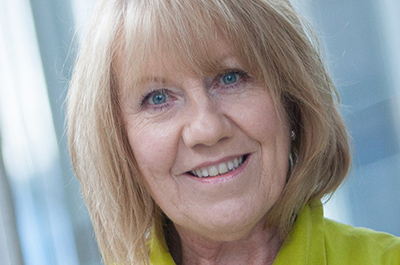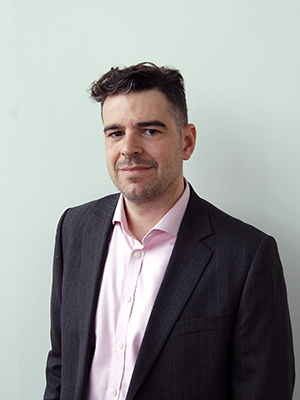Series 1 – 2019/20
Paper 1: Leadership, conversational practice and engagement: working with paradoxical tensions, Authors: Professor Helen Francis and Catherine Thompson. Published August 2019
Paper 2: Leadership in the UK Public Sector: A Renewed Call to Action, Authors: Dr Kirsteen Grant and Chief Superintendent Rachel Williams. Published December 2019
Paper 3: Recruitment in the Voluntary Sector: Challenges and Opportunities, Authors: Dr Doug Young and Corinne Morrison-Gillies. Published May 2020
Series 2 – 2020/21
Paper 4: Talent management as a motivational tool for leveraging organisational change, Authors: Norma D’Annunzio-Green and Allan Ramdhony. Published January 2021
Paper 5:Leading Environmental Change: A Sustainable Human Resource Management Approach, Authors Dr Andrew Bratton and Markus Hiemann. Published July 2021
The next paper in this series will be published in December this year.
Paper 1
[Click on the title above to download the paper]
Indications are that employee engagement is a critical priority for leaders and people professionals, concerned with boosting organisational effectiveness and championing better working lives. In this paper, Helen Francis reflects upon leadership issues arising from People strategies aimed at building employee engagement in an age of austerity. Using a set of reflective questions, she explains that engagement is more tension-filled and therefore less stable than psychologists tend to suggest and goes on to explain what this means in practice. The need is stressed for better communication practices that help workers and managers deal with tensions productively.
Catherine Thomson then presents a case example of a dialogic leadership intervention within a Housing Association, at a time when the organisation was experiencing poor operational performance, low morale and engagement.
Authors:
Professor Helen Francis 
Helen Francis is Professor of People and Organisation at Edinburgh Napier Business School and holds an honorary professorships at St Andrews University. She started her career in personnel management and industrial relations, and when she moved into academic practice, she completed a PhD in the role of language and strategic change. She has played key roles in research, teaching and commercial developments in public, private and not-for profit sectors. Helen has published in a wide range of academic and practitioner journals / textbooks, calling for the pursuit of more 'balanced' HR agendas. As a Fellow of the Chartered Institute of Personnel and Development, she developed strong links with the Institute and with business communities, building a reputation in executive education and research-based consultancy, and achieved the lifetime award of ‘Outstanding Contribution to the Scottish HR Profession’ in 2013 (HR Network Awards Scotland).
Catherine Thompson 
Catherine is founder of the Houston Exchange and has over 20 years’ experience in helping senior leaders align their workforce to deliver company strategy. Working internationally with leading brands across multiple sectors, Catherine’s experience spans the full range of people and organisational challenges including, performance transformation, behavioural change, top team and board development. Her focus now is working with leaders to help boost individual and team performance by focusing on workplace conversations, and the actions and behaviours that flow from them. She has worked in all sectors with UK-wide and international experience. She is accredited by the Kantor Institute to work with the Behavioural Propensities Profile, an instrument for measuring distinctive behaviours that are typically expressed in everyday conversations. Catherine is a co-recipient of the Gold Medal Award for Best Leadership Development Programme awarded by the Training Journal UK.
Paper 2
[Click on the title above to download the paper]
The UK public sector is facing unprecedented challenges, with a growing demand for leaders and leadership to improve the delivery of sustainable public services. In this paper, Kirsteen Grant reflects on how changes in the public sector context are creating leadership challenges through placing the spotlight on a recent UK-wide Workforce Development Survey (WDS) conducted by the Workforce Development Trust in partnership with Edinburgh Napier University (Parry, Grant and Sheehan, 2019). Rachel Williams then presents a case study concerning a leadership development programme within Avon and Somerset Police, geared towards addressing some of these challenges within a policing context.
Authors
Dr Kirsteen Grant
 Dr Kirsteen Grant is Associate Professor (Work and Employment) at Edinburgh Napier University. Kirsteen draws on complementary backgrounds in organisational practice and academia. She has worked extensively in areas of strategic change management as well as organisational, professional, leadership and talent development. Her research interests centre on professional, responsible and precarious work; future of work; leadership; talent management; and workplace skills utilisation. Kirsteen has published a number of journal articles, book chapters and practitioner reports, and regularly presents her work at international academic and practitioner conferences. She is the current holder of a research grant from the Carnegie Trust to explore young people’s expectations of work and the contemporary workplace, and to compare these with employers’ expectations of the young workforce. Kirsteen is Editor of the Journal of Management Development (https://www.emeraldinsight.com/journal/jmd) and is passionate about bridging the gap between academic research and professional practice. She is a Chartered Fellow of the CIPD and Senior Fellow of the Higher Education Academy.
Dr Kirsteen Grant is Associate Professor (Work and Employment) at Edinburgh Napier University. Kirsteen draws on complementary backgrounds in organisational practice and academia. She has worked extensively in areas of strategic change management as well as organisational, professional, leadership and talent development. Her research interests centre on professional, responsible and precarious work; future of work; leadership; talent management; and workplace skills utilisation. Kirsteen has published a number of journal articles, book chapters and practitioner reports, and regularly presents her work at international academic and practitioner conferences. She is the current holder of a research grant from the Carnegie Trust to explore young people’s expectations of work and the contemporary workplace, and to compare these with employers’ expectations of the young workforce. Kirsteen is Editor of the Journal of Management Development (https://www.emeraldinsight.com/journal/jmd) and is passionate about bridging the gap between academic research and professional practice. She is a Chartered Fellow of the CIPD and Senior Fellow of the Higher Education Academy.
Rachel Williams
 Rachel Williams is Chief Superintendent at Avon and Somerset Police where she leads the Operational Support Directorate. Rachel’s spent much of her early career as a Detective in both investigative and covert intelligence roles. She transferred to Avon and Somerset Police in 2012 as a Senior Investigating Officer in the Major Crime (homicide) department, moving next to Head of Public Protection, where she also became the Force and Regional Lead for Rape and Sexual Offences. More recently, Rachel became the Head of Operational Support, becoming an accredited Strategic Firearms Commander and Public Order Commander, and leading the police response to a number of high profile events, including the Glastonbury Festival during 2019. In 2016 Rachel was chosen to lead the design and implementation of a new Force-wide ‘Aspire’ Leadership strategy, an area of personal interest, which allowed her to develop further her passion to improve leadership across the whole workforce, for the benefit of the public.
Rachel Williams is Chief Superintendent at Avon and Somerset Police where she leads the Operational Support Directorate. Rachel’s spent much of her early career as a Detective in both investigative and covert intelligence roles. She transferred to Avon and Somerset Police in 2012 as a Senior Investigating Officer in the Major Crime (homicide) department, moving next to Head of Public Protection, where she also became the Force and Regional Lead for Rape and Sexual Offences. More recently, Rachel became the Head of Operational Support, becoming an accredited Strategic Firearms Commander and Public Order Commander, and leading the police response to a number of high profile events, including the Glastonbury Festival during 2019. In 2016 Rachel was chosen to lead the design and implementation of a new Force-wide ‘Aspire’ Leadership strategy, an area of personal interest, which allowed her to develop further her passion to improve leadership across the whole workforce, for the benefit of the public.
Paper 3
[Click on the title above to download the paper]
UK voluntary sector organisations are facing intense resourcing challenges in the wake of significant changes taking place in their recruitment context. In this paper, Doug Young reflects on particular challenges being faced by social care organisations in this sector, and potential organisational responses to these. Corinne Morrison-Gillies then presents a case study example of their ‘Get Into Care with CrossReach’ programme, designed to facilitate the employment of young people with challenging backgrounds in her organisation.
Authors
Dr Doug Young
 Dr Doug Young is a lecturer in Human Resource Management at Edinburgh Napier University. His teaching interests include employment relations, the organisational context of HRM, people management, and organisational strategy, from undergraduate to PhD level. His research focuses on employment relations in voluntary sector social care. His PhD thesis focused on the delivery of personalisation and self-directed support in the context of austerity in Scotland, and he has several existing and upcoming journal publications and book chapters on subjects such as the impact of customer norms on employment in social care, teamworking and service provision, and trade union membership and mobilisation in the sector. He has worked on a number of large-scale research projects within the voluntary sector, most notably the Coalition of Care and Support Providers (CCPS) annual HR Benchmarking Report.
Dr Doug Young is a lecturer in Human Resource Management at Edinburgh Napier University. His teaching interests include employment relations, the organisational context of HRM, people management, and organisational strategy, from undergraduate to PhD level. His research focuses on employment relations in voluntary sector social care. His PhD thesis focused on the delivery of personalisation and self-directed support in the context of austerity in Scotland, and he has several existing and upcoming journal publications and book chapters on subjects such as the impact of customer norms on employment in social care, teamworking and service provision, and trade union membership and mobilisation in the sector. He has worked on a number of large-scale research projects within the voluntary sector, most notably the Coalition of Care and Support Providers (CCPS) annual HR Benchmarking Report.
Corinne Morrison-Gillies
 Corinne Morrison-Gillies is an experienced, senior HR professional. Her HR experience has been gained across both private & not for profit sectors in an HR career spanning 20 years. Currently Head of HR Operations and People Development and Central Services HR Business Partner for CrossReach, who she has worked for now for 9 years. Corinne combines commerciality with a genuine compassion for people and ensures that her personal values are at the heart of all she does. Corinne was educated at George Heriot’s School in Edinburgh and at Napier and Strathclyde Universities.
Corinne Morrison-Gillies is an experienced, senior HR professional. Her HR experience has been gained across both private & not for profit sectors in an HR career spanning 20 years. Currently Head of HR Operations and People Development and Central Services HR Business Partner for CrossReach, who she has worked for now for 9 years. Corinne combines commerciality with a genuine compassion for people and ensures that her personal values are at the heart of all she does. Corinne was educated at George Heriot’s School in Edinburgh and at Napier and Strathclyde Universities.
Paper 4
[Click on the title above to download the paper]
Talent management (TM) is becoming increasingly vital to success as organisations grapple with rapidly and constantly changing business contexts. In this paper, Norma D’Annunzio-Green and Allan Ramdhony reflect on their latest thinking about the deployment of a ‘motivational approach’ to TM. They argue that current approaches to TM are highly ‘performative’ – marked by traditional human resource management (HRM) practices that are primarily driven by economic interests and performance outcomes for the organisation, and less on the motivational and development needs of workers. The authors introduce the term ‘Motivational Talent Management’ (MTM) to identify a cluster of HRM-related activities that have potential to strike a better balance between these two imperatives. They cite compelling evidence for MTM to become a powerful lever for sustainable organisational change, and point to the vital role that line managers play in re-energising TM processes. Their arguments are brought to life in a case study example of changes taking place within a UK privately owned health care organisation.
Authors
Norma D’Annunzio-Green
Norma D’Annunzio-Green is module leader for Research and Professional Development and Dissertation modules. Norma is a Senior Lecturer and Senior Teaching Fellow with significant experience of leading and developing academic programmes, delivering modules and providing student support across all levels. She has a strong research profile in the area of HRM and teaching and learning pedagogy, including recent publications in highly ranked academic journals (Employee Relations, Personnel Review, The international Journals of Contemporary Hospitality Management and Advances in Higher Education ). She has Edited a text book and two Special Editions of journals, the most recent in 2019 on Talent Management. She draws on this expertise to enhance her teaching practice, and provides a stimulating, structured and supportive space for students to learn.
Dr Allan Ramdhony
Dr Allan Ramdhony is a lecturer in HRM and research methods at Middlesex University, Mauritius. His approach to adult education is rooted in critical pedagogy – which sees teaching as a socio-political activity that promotes a humanistic and empowering approach to learning and aims to remove barriers that stand in the way of the self-development and emancipation of the learner as a unique ‘species being’. He has considerable experience in programme development and leadership as well as supervision at undergraduate, masters and doctoral levels. His research interest is centred on critical theory and critical realism as applied to key functional areas and activities of HRM and change management. He has contributed to several academic journal articles and conference papers. He is currently authoring a couple of books on the role of philosophy in doctoral research and on change management in the modern workplace.
Anonymous Case Study Author
The authors would like to thank a professional colleague and HRM practitioner (who wishes to remain anonymous at this time), for their valuable help and expertise in providing and co-writing the case study included in this reflective paper.
Paper 5
[Click on the title above to download the paper]
What is the role of leaders in creating environmentally sustainable organisations?
As the United Kingdom hosts the 26th United Nations Climate Change Conference of the Parties (COP26) in Glasgow, Scotland later this year, we can expect academic and practitioner interest in organisational environmental sustainability to become even more widespread
In this paper, Dr Andrew Bratton introduces the concept of sustainable human resource management. He then reflects on the role of environmental leadership, employee voice and organisational culture in supporting environmental sustainability, and how this is closely connected to organisational change. Markus Hiemann, Sustainability Manager, then presents a case study example of the role of leadership and organisational culture in supporting the implementation of environmental sustainability initiatives in a conference centre within the NHS Scotland.
A sophisticated sustainability strategy should focus on improving environmental, social and governance (ESG) performance in the areas in which the organisation has a material environmental or social impact (e.g., operations, supply chain, or customers). To measure the business impact of organisations, sustainability leaders are encouraged to use the SDG Action Manager, a free confidential online tool used to measure and manage their social and environmental impact.
This case study highlights the critical importance of leadership and organisational culture in fostering a culture of learning for sustainability. Focus has been given to the potential for employee involvement and “voice” mechanisms in the building of a culture of learning for sustainability, and employees’ engagement in pro-environmental behaviour. For example, the appointment of environmental ‘champions’ and ‘green teams’ enabled individual and group learning opportunities in support of the change process.
Additionally, the case study suggests that representative forms of participation are also associated with the success of environmental activities, especially in unionised public sector organisations. The key positive lesson to be learned is that leadership, effective employee voice and fostering a culture of learning for sustainability contributes to organisational sustainability. For more information about the SDG Action Manager, or to discuss research related ideas or collaboration, please contact Dr Andrew Bratton: a.bratton@napier.ac.uk.
Authors
Dr Andrew Bratton 
Andrew is a Lecturer in Human Resource Management at Edinburgh Napier University. He has over 10 years’ academic and practitioner experience as a business school researcher and lecturer in the UK and Singapore, and previously as a change manager in a Microsoft business technology consultancy. His research and knowledge exchange work are focused on sustainable human resource management, leadership, workplace innovation, technology and action learning. He has published work on Sustainable HRM in The Psychology of Green Organizations (Oxford University Press) and Human Resource Management: A Critical Approach (Holtzbrink).
Markus Hiemann 
Markus is an experienced Sustainability Manager with a demonstrated history of working in the hospital and health care industry. He is skilled in sustainable development, systems thinking, environmental awareness, sustainable transport, and leadership. He is a strong community and social services professional with a Postgraduate Certificate in Sustainable Business focused on Sustainability Studies from Cambridge Institute of Sustainability Leadership, University of Cambridge.